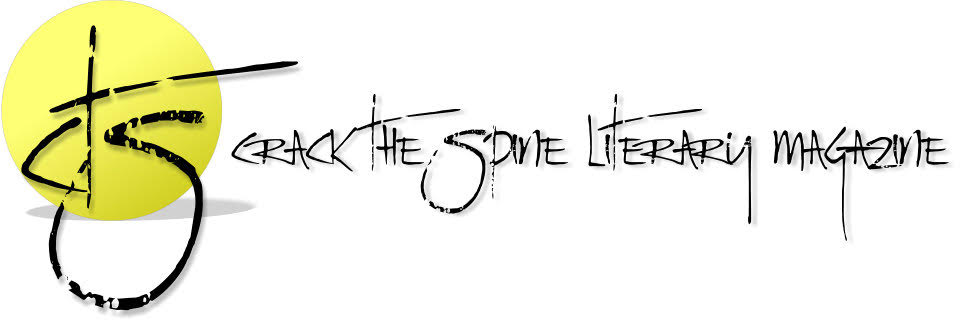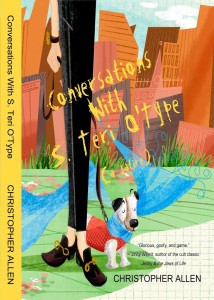We’re pleased to introduce the latest CTS Wordsmith Interview!
Christopher Allen
Munich, Germany
MA in English, BA in Business Administration with a concentration in music business
The Writer
How long have you been writing?
My first piece of fiction was a compelling story entitled “Cobraman.” I was 10. Apparently, I also illustrated back then, but with no extant copies of my work to prove this we’ll simply have to take my mother’s word for it. I’ve never stopped writing.
Do you have a specific writing style?
I never start a story with a style in mind. The characters’ voices almost always take control of style. Many of my stories, though, involve a certain kind of dry humor, but then some don’t. A good part of my very brief fiction is surreal or absurd, but then there are those that aren’t I do feel freer and more confident with surrealism than I do with realistic narratives.
What is your greatest challenge as a writer?
Whatever the style, I struggle to strike the right final chord so that I feel satisfied in the end. Getting the ending right is my greatest challenge.
The Work
Tell us about your work in Crack the Spine.
“The Bee” happened because I wanted to write a story about horrible parents, and I can’t remember why I wanted to do this. But I did. It’s about a mother and a father who dream of escaping from their familial prison and their mentally challenged son, Jayson.
Is there a main theme or message in this piece?
The theme: sabotage. Specifically, it’s about The Mother and The Father’s feelings of being trapped and caged and their attempts to sabotage this situation in order to free themselves. There is also the theme of isolation going on since The Mother and The Father never actually communicate directly in the story.
How long did it take you to complete this piece?
“The Bee” went through several drafts over a period of six or seven months, but I also left it alone for months at a time.
Tell us about another project you have published or are currently working on.
“Conversations with S. Teri O’Type” (a Satire) is the story of a man struggling with expectations. He’s a gay man in his forties having trouble being gay, so he’s enlisted the help of his oldest and gayest friend S. Teri O’Type to drag him a few inches down the Road to Greater Gayness. The book is an absurdist comedy/cartoon that satirizes how American sitcom discourse seeps into our brains and controls the way we behave.
What inspired this work?
My general observations of how so many people still expect gay men to act in certain ways. Even gay men themselves expect gay men to act in certain ways. And ultimately we all—gay, straight, whatever—have internalized these expectations. It’s scary. Run for the hills!
Where/When can we find this work?
You can find the book by Googling s teri otype, and you’ll find a hundred bookstores to buy it from if you don’t want to buy it from Amazon. I make more money on the Kindle version, so if you want me to make more money (sweet people), go here.
The Methods
How often do you write?
Irregularly at the moment, but my head is always writing. Other aspects of my life changed last year, and this upset my usual writing rhythms.
Where do you write?
I need to be at my desk at my computer where I can type quickly. I sometimes write longhand in my sunroom if my shoulders are hurting, but my handwriting is so bad that I often can’t figure out later what I’ve written.
What time of day or night makes you most productive as a writer?
My minds works best between 4:00 and 6:00 a.m. I’m absolutely worthless in the evening.
What is your usual starting point for a piece? (Is your work character driven, plot driven, inspired by locations, etc?)
Great question. I have scraps of ideas lying about everywhere. Most are on my desk, but some are so pressing that they follow me as mental notes: an image, a line of dialogue, a character, a phrase. They’re all just sitting there, as if in a doctor’s waiting room, fidgeting for me to give them a story.
How do you react to editorial rejections of your work?
I love this question as well. I’m an editor. The way I look at rejection is that the editor is doing you no favors by publishing something not ready for the scrutiny of skeptical readers. This decision is, of course, subjective. What one editor hates another might love. Rejection never feels good; but if you consider that a rejection may be your chance to develop a story further so that another journal accepts it later, a no just means not yet.
How do you react when one of your submissions is accepted for publication?
I immediately reread the story to make sure there are no typos, and then I put a smiley face next to the title on my scribbled submission sheet (if I can find it under all the scraps of paper on my desk).
What is your best piece of advice on how to stay sane as a writer?
Well, sanity-schmanity. If you like your monsters, keep them; but whatever you do, keep working. It’s not important that everyone loves what you do. Even the greatest writers have their critics—and their monsters. Do what you do, and always try to do it better. Eat green, leafy vegetables.
The Madness
What makes you laugh?
Well-timed comedy makes me laugh. Dry wit delivered at just the right moment by a person/character bursting with wisdom makes me laugh. Silly cat memes make me laugh. I’m very ticklish, so that makes me laugh.
What makes you cry?
I grew up watching Little House on the Prairie and singing “Just as I Am” in the Southern Baptist church, so I’m conditioned to cry on cue. Big sap. I can actually just start crying for absolutely no reason if I want to, and I guess this means I should have become an actor.
What’s in that cup on your desk?
Coffee. It’s a Starbucks mug with New York on it. My collection of Starbucks mugs is enormous, and I guess that makes me a sucker.
Beach or Mountains?
Middle name: Heidi.
Cats or Dogs?
Big stinky dogs.
Pen or Pencil?
I collect pens.
Additional Reading about Christopher…
Personal website/blog:


